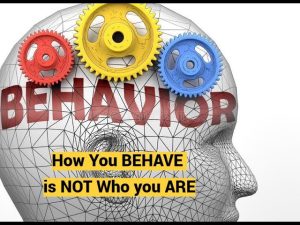Virtualization and Its Psychological Impact
- The discussion began with the concept of virtualization as a retreat from reality into simulations, starting with the cinema and evolving into modern technology like the metaverse. Urbanization was described as an early form of virtualization, shifting people from agriculture-based reality to architect-designed cities, changing psychology from maturity and self-reliance to dependency and infantile behaviors. [00:00]
- The metaverse represents a profound form of virtualization where people inhabit programmer-created simulations using devices like goggles and haptic gloves, eventually leading to self-sufficiency and reduced real human interactions. This can foster asocial behavior and commoditization of social interactions. [10:30]
- The psychological effects of moving into the metaverse include solipsism, detachment from humanity, and addiction. The blending of reality and simulation, termed “twinning,” threatens clarity of authentic experience and increases mental health issues like depression and anxiety. [20:00]
- Technology has shifted from extending human abilities to enabling escape from reality, culminating in the metaverse where simulations can own and control one’s perceived reality, raising serious ownership and addiction dangers. [26:00]
- Promises of the metaverse include improved collaboration efficiency and accessibility for disabled and mentally ill populations, but uncontrolled use poses enormous risks. [36:00]
AI and Pathological Narcissism
- AI and pathological narcissism share similarities as “crowdsourcing” or hive minds, both using aggregated inputs to create identities or responses, largely focused on impression management rather than truth or empathy. AI like ChatGPT often hallucinates facts and aims to impress rather than convey accuracy. [39:30]
- Both narcissists and AI exhibit cognitive or “cold” empathy used to manipulate or simulate understanding, without true emotional empathy. The lack of genuine empathy is central to both pathological narcissism and current AI behavior. [44:30]
- The mental health state of tech creators was highlighted: many major innovations come from individuals with schizoid or narcissistic personality disorders, influencing the nature of technology created. [47:30]
Ethical Use and Dangers of AI
- Concerns were raised about the addictive, manipulative nature of AI and social media algorithms, which are designed to maximize user engagement and obscure reality. The mass deployment of AI on platforms like phones makes regulation difficult. [50:00]
- The contrast between strict controls on biotechnologies and weapons versus the free and unlimited public access to powerful AI was criticized, attributing this disparity to financial interests. [55:00]
- AI has potential for positive uses, especially in assisting victims of manipulation by detecting narcissistic or psychopathic patterns early through linguistic analysis and guiding communication strategies such as the grey rock method. [58:30]
AI as a Tool for Detecting Narcissism and Psychopathy
- Language is identified as the most reliable single marker for identifying narcissistic and psychopathic behavior. Unlike humans, AI can analyze language objectively without emotional bias, making it superior for detection purposes. [1:05:00]
- AI could administer psychological assessments and provide profiles to users to make informed decisions about interactions, increasing awareness and personal responsibility. [1:00:30]
- Simplification of diagnostic information is important because clinicians often get overwhelmed by too much contextual and emotional data, reducing accuracy in identifying these disorders. AI’s neutral processing of language can mitigate this noise. [1:10:30]
- Differentiating between narcissistic confabulation and psychopathic manipulation can be achieved via language usage patterns, such as the narcissist’s use of conviction terms versus the manipulative phrasing typical of psychopaths. [1:15:30]
Communication Strategies and Narcissists
- Techniques like the grey rock method, which involves minimizing emotional reactions and attention supply, are effective at deterring narcissistic individuals as they lose interest when supply is disrupted. However, the critical challenge is early identification. [1:02:00]
- AI could function as a guide, providing real-time advice and protective communication methods for those interacting with toxic individuals. This could reduce psychological harm and improve coping outcomes. [1:12:30]
Note: All timestamps are approximate and correspond to the minute and second marker within the transcript where the topic is primarily discussed.






